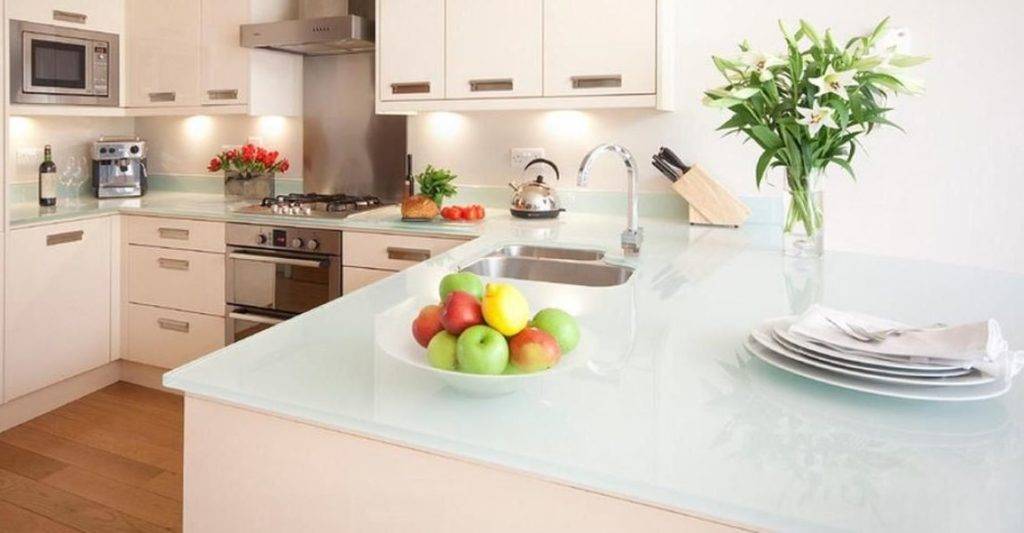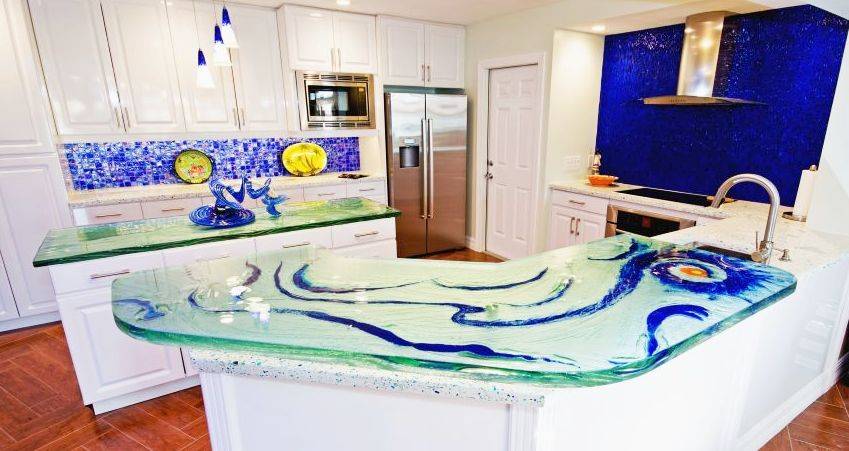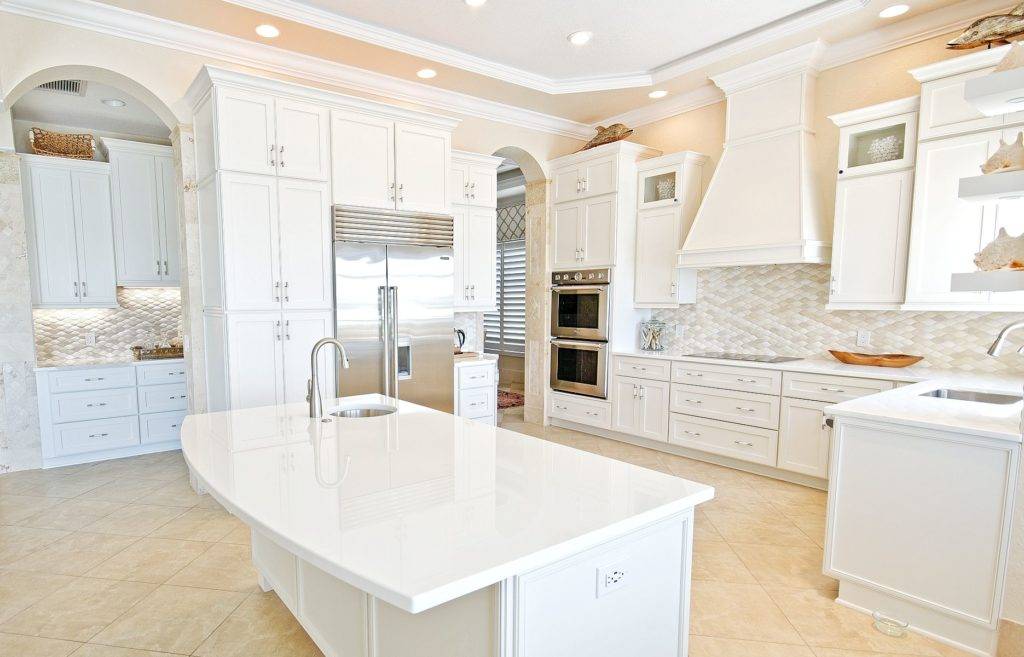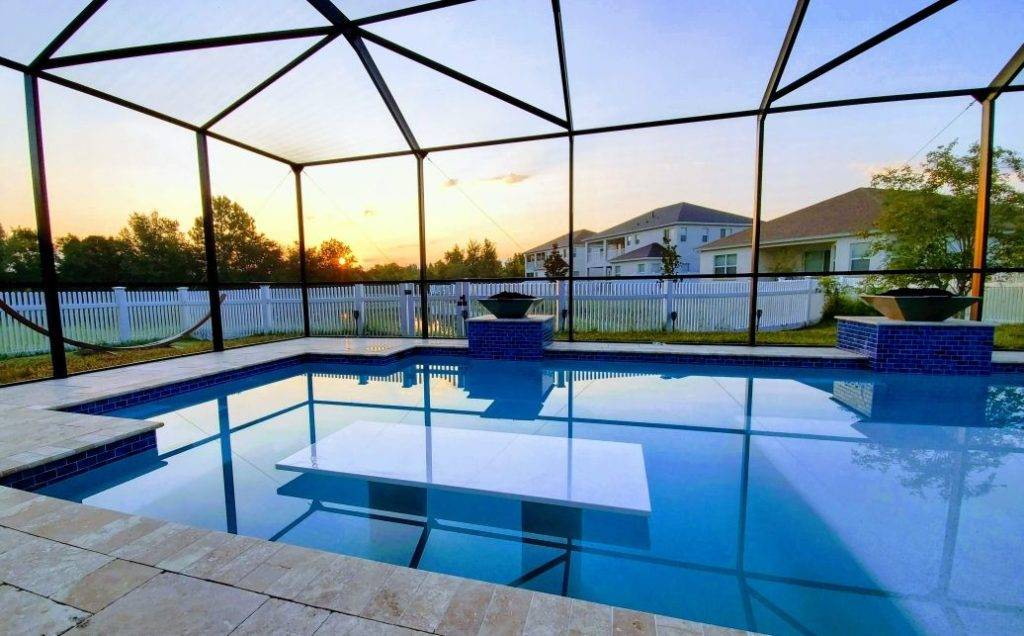Last updated on January 8th, 2021 at 04:05 pm
Buying Glass Countertops in 2021
Content
-
Interviewing Your Glass Countertops Fabricator
-
Author Qualifications
-
Glass Countertops Types and Terms
-
Textures for Glass Countertops
-
Cutting and Polishing Glass Countertops
-
Lighting Glass Countertops
-
Metal Support Brackets and Installation Techniques
-
Glass Countertops Cost
-
Installation and Shipping Glass Countertops
-
Remodeling Trends
-
Conclusion
-
ERRATA: The Dumbest Glass Countertop Ideas on the Internet
Thick Glass countertops are one of the hottest design trends in Kitchen and Bath remodeling today. No other material enhances the visual beauty of your space like the translucent nature of glass. It offers endless creative possibilities which high-end designers demand when their projects require a luminous focal point.
If you are buying Glass Countertops, this buyers guide will help you understand the many decorative options available to make it “POP” in your home.
As a buyer, we recommend you ask lots of questions of your glass fabricator after website visits followed by On-Site tours and first-hand inspection of product quality.
Do your reputation research. Know what you are getting for your money in writing upfront. Here are some good interview questions to start…
Questions for your Glass Countertop Fabricator
- Where are your products Made… In the USA?
- Are they responsive via phone, text and email? Speak with Who will Measure, Design, Fabricate and Install.
- Share your Vision with your Fabricator in Sketches and Photos from e.g. Houzz
- Are your Inputs taken when Designing Glass textures?
- Do they Feel Passionate about their work…or are they just a slab exporter?
- Are they Reputable ?
- Get a written Quote with all options itemized with Installation.
Author Qualifications
This guide was written by Jeff Downing of Downing Designs, a professional design-build-install studio that has installed millions of dollars of custom Glass surfaces. He has an intimate understanding of glass countertop fabrication.
Downing Designs has a truly unique approach where human interaction and creative insight are fluidly aligned to imagine a brighter future for your space. Great things happen (e g. Prototypes) when we cross-pollinate our ideas with others. The result is a functional piece of glass art that has an emotional connection with their clients.
If you Google “Buy Glass Countertops” you will see many keyword-stuffed, ad-driven sites posting misleading statements and very odd glass high bar support ideas. Please enjoy our ERRATA section at the end where we’ve called them out for their misleading statements and expensive glass countertops installed in strange, half-baked ways. Buyer Beware!
Glass Types and Terms
Glass Countertops can be fabricated from a variety of glass. Float Glass is commonly used. Float glass is a flat sheet created by “floating” raw molten glass (a mix of raw material and recycled glass cullet) over a bath of molten tin.
Float Glass glass pieces up to 177” x 127” x ¾” thickness are available and are well suited for flat, back painted countertops and splashbacks.

3/4″ Low iron Glass Backpainted White
Low-Iron Glass is a Float glass with low amounts of iron which render a light bluish hue. This is critical when viewing the edge, as you will see the color intensity greatly magnified. Low-iron glass is well suited for countertops and backsplashes.
“Clear” Glass is a Float glass with higher iron content that renders it a greenish hue. The thicker the glass, the deeper the hue. Dont use “Clear” glass if you are back painting the glass as it will tint your final result.
Tempered Glass is created from Float Glass by heating in an oven and then quickly cooling. Tempered glass is about 4x stronger than annealed glass, allowing it to be used for thin glass applications e.g. shower doors, sneeze guards. Tempered glass must have all cuts completed before tempering. Usually, glass that is ¾” or thicker need NOT be tempered for use in bathrooms vanity tops, or kitchen glass counters.
- Designer Note: Lighting flat glass with LEDs is generally a waste of money because it has no texture depth to deflect the light.
Slumped Glass is made by placing glass over a mold then thermoforming at ~1300 degrees F in Kilns until the glass “slumps” and to the shape of the mould. Slumping glass over large textured ceramic sand beds creates textured glass Sinks and Glass Backsplashes.
Fused Textured Glass is a process where sheets of float glass are thermoformed over a large ceramic sand bed or mould and fused at ~1450 degrees F, then annealed. The annealing process “heat-strengthens” the fused glass product to almost 2x annealed glass strength. Fused textured glass at 1.5” thick is very strong and is an extremely durable material that can be cantilevered to a much greater degree than most surfacing materials.

Glass Countertop Cantilevered 37″ from left Support
- Designer note: 1” thick countertops do not have the visual depth on edge vs 1.5” glass but cost only fractionally less.
Textured glass hides the appearance of fingerprints and minor scratches.
Fused Glass with Colors is created using an inter-layer “paint” of glass frit and enamels and then fired. Vibrant colors are possible.

Glass With Colored Frit Fused in between Layers
Hot glass is the process of gathering and molten glass and twirling it into the artists final vision. Beautiful small artistic glass sinks and pieces can be formed this way. Examples include Dale Chihuly and “Big Wave” Dave Wight.
White Glass countertops (aka Nano glass, Crystallized glass) are a fusion of recycled glass and minerals created at 3000 degrees. It is poured, cooled then polished to a very high gloss shine. White glass countertops share a non-porous nature with Glass.
Pure White Glass countertops change the spatial relationship of every room they reside. In fact, they make kitchens and baths appear ~25% larger.

White Glass Countertops in Kitchen
From a 2019 survey on Houzz: White countertops continue to grow in popularity. Nearly one in three counters are done in white (22%, 27% and 31% in 2017, 2018 and 2019 studies, respectively) making them the #1 countertop choice for homes.
White glass is much harder on the Mohs hardness scale (7) vs glass (5.5) or granite (6.2) or engineered quartz (6.7). It is a superior countertop material for outdoors as it reflects much of the solar energy, is UV-proof, non-porous, stain-proof, requires zero maintenance or sealing, acid-proof and does not burn from cigarettes. White glass comes in slabs 120” x 60” x 1.2”

White Glass Countertop in pool bar

